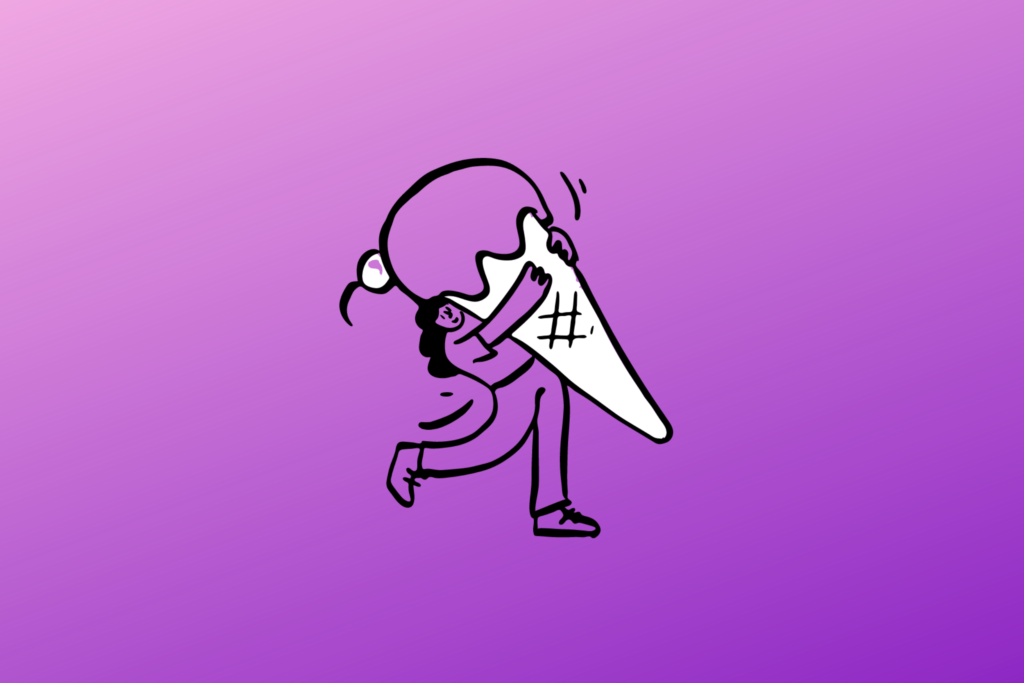Sleep Hygiene:
My top 11 Tips for Improving Your Sleep
6th september 2020
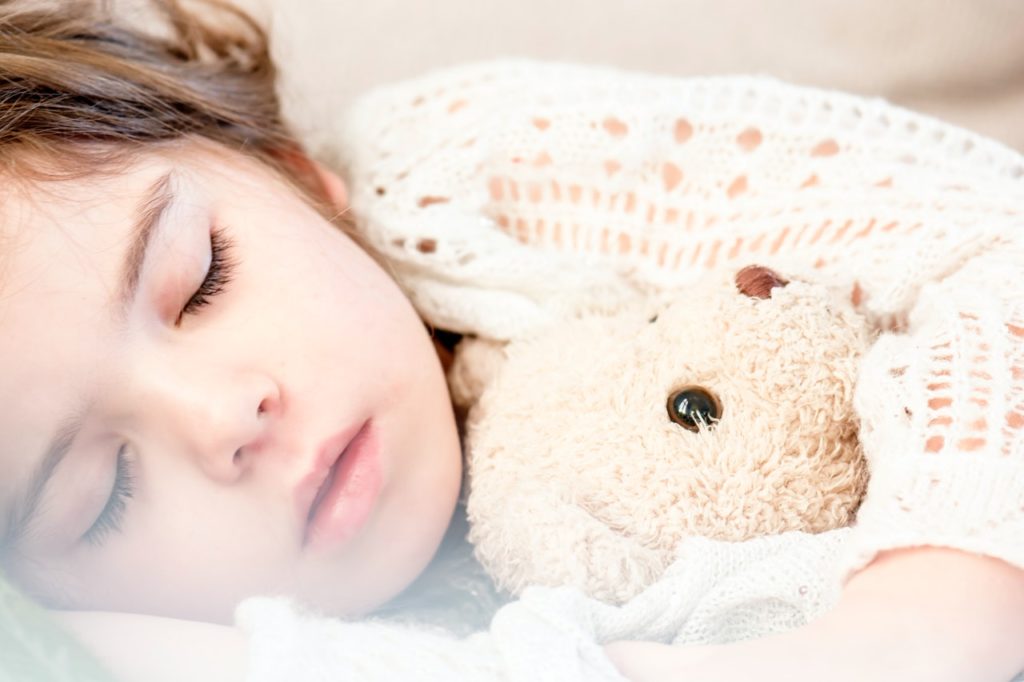
Sleep is essential.
But it is often the first thing we sacrifice when our lives become busy and stressful. Sometimes it seems there just aren’t enough hours in the day to accomplish everything we want to do – from working, to running household errands and spending time with family and friends. We have all been guilty of staying up late, whether it be from working long hours, trying to finish that assignment that’s due tomorrow, or simply binge-watching our favourite show on Netflix. There are also other factors that can lead to poor sleep – including stress (at home or work), anxiety and depression.
So, if you find yourself struggling to obtain good quality sleep or simply not getting enough sleep, what can you do about it?
The solutions fall under an umbrella called “Sleep Hygiene”.

What is Sleep Hygiene and Why Is It Important?
Sleep hygiene is a collective term used to describe good sleep habits. These habits can range from looking after your physical and mental health to ensure you get a restful night’s sleep. Check out my top 10 sleep habits below (link).
Getting a good night’s rest is important for your physical and mental health. Whilst it is okay to have the occasional late night or poor sleep, in the long run, these habits can lead to long-term health complications. Poor quality sleep or not enough sleep have been linked to increased rates of heart, lung, kidney, brain and weight problems (just to name a few). Poor sleep can impact our mental health too and can result in difficulty concentrating at work, feelings of low mood or anxiety, slow reaction times and increased risk of motor vehicle accidents.
Implications of poor sleep on your physical health include a greater risk of developing the following conditions:
- Heart disease
- Kidney disease
- High blood pressure
- Diabetes
- Stroke
- Obesity
- Common infections
- Difficulty concentrating
- Impaired decision making
- Slower reaction times
- Low mood
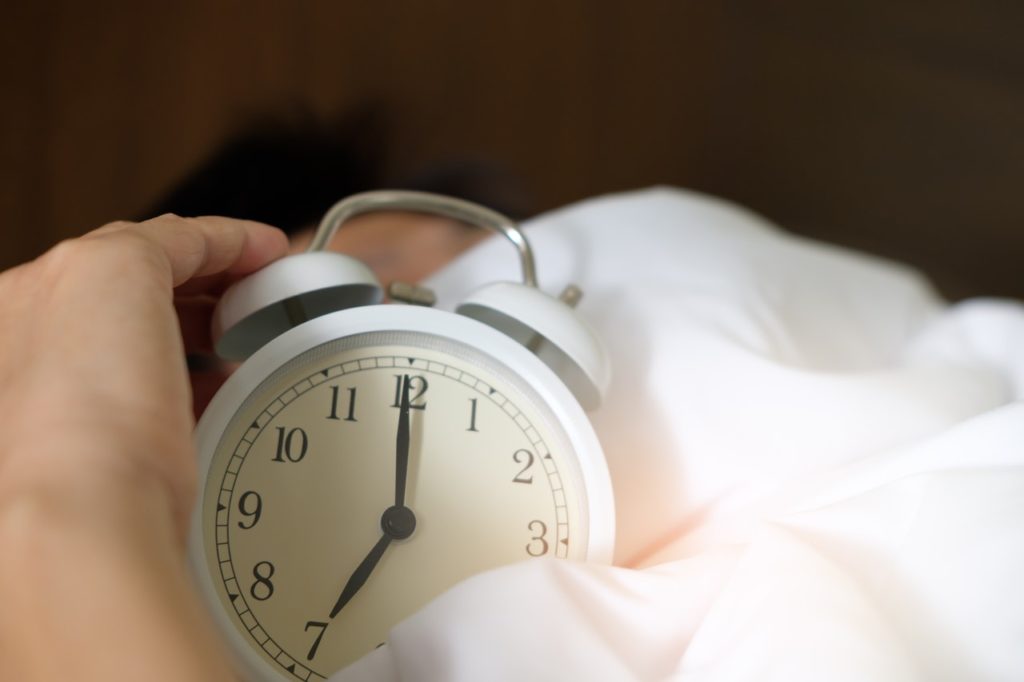
How Much Sleep is Enough?
Whilst you are sleeping, your mind and body are resting and recharging for the next day, so it is important that you set aside an appropriate amount of time for this to happen.
The recommended amount of sleep varies according to your age. The following table is a guide.
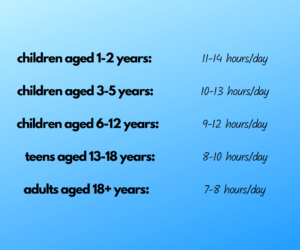
Remember, these are only recommended amounts. The appropriate amount of sleep vary from person to person. If you feel you are sleeping too little or too much compared to these recommendations, it is always a good idea to see your local doctor/GP for further advice and management..
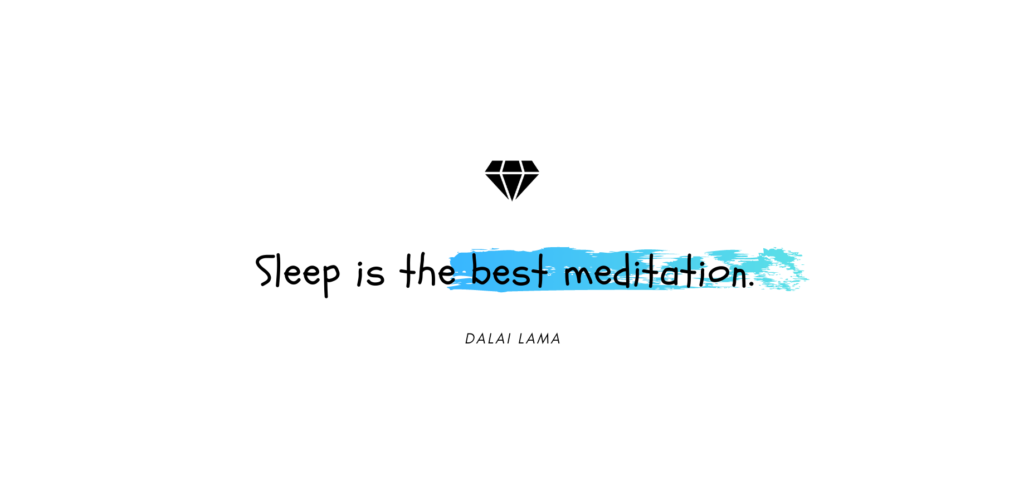
What are the Signs and Symptoms of Sleep Deprivation and Deficiency?
The signs of sleep deprivation can be subtle and hard to pick up at first. It is important to recognise these early and implement strategies to improve your sleep quality and duration.
- Poor concentration or ability to focus on tasks
- Difficulty making decisions or problem solving
- Finding it hard to remember things
- Lack of motivation
- Find yourself to have fluctuating moods – irritable, low mod, anxious feelings
- Falling asleep in any of the following scenarios:
- Sitting and reading or watching TV
- Sitting in a public place (cinemas, meeting, classroom)
- As a passenger in a car for an hour without a break
- Whilst having a conversation with someone
- Sitting quietly after lunch
- Waiting in traffic for a few minutes
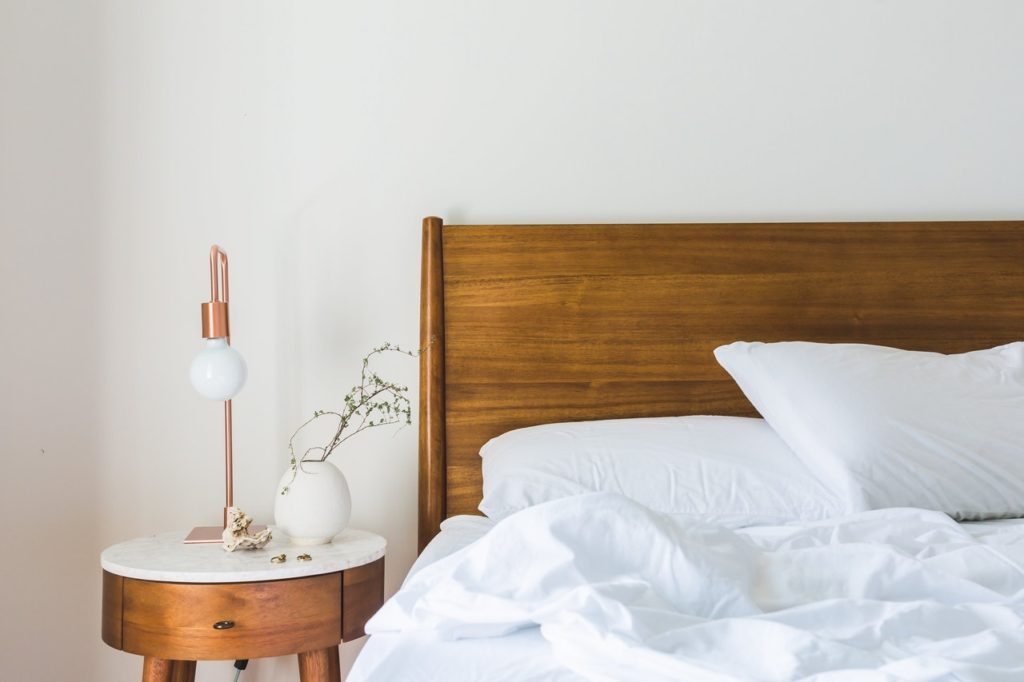
Top 11 Sleep Hygiene Tips
Now that we have established sleep is important and that we may/may not be getting enough of it, what can we do about it?
Here are my top 11 tips:
1. Set a Regular, Consistent Sleep Schedule
Go to bed and wake up at the same time every day. Try to keep this the same on weeknights and weekends with minimal adjustments. This will get your body used to a routine.
2. Create a Relaxing Pre-Bed Routine
Use the 30-60 minutes before bed as “wind-down” time. Create a routine of relaxing activities (e.g. warm bath/shower, reading a book, meditating, listening to calming music) before bed to tell your body sleep time is approaching. Avoid strenuous or stimulating activity before bed. If 30 minutes is too much to begin with, opt for a peaceful 15 minutes to yourself. It really can make all the difference. Having a pre-bed routine tells your body that it is almost bedtime and that it’s time to get ready for bed. This works equally well for children and adults.
3. Unplug Before Bed
In the 30-60 minutes before bed, it is extremely important to avoid blue light from devices (TV screens, tablets, mobile phones) as these can trick your body into thinking it is time to be awake.
4. Eat a well-balanced dinner before bedtime
- Aim for a healthy balance of vegetables, protein and carbohydrates in your dinner
- Avoid heavy/greasy/large meals before bedtime as these can upset your stomach whilst you are trying to sleep. They can also lead to indigestion which can make it harder to sleep.
- Don’t go to bed hungry!
5. Avoid stimulants late in the day
Nicotine (cigarettes), alcohol and caffeinated drinks all have pro-stimulant effects that can make it difficult for you to fall asleep. Try to avoid these at least 6 hours prior to bedtime.

6. Get moving!
Spend time outside everyday and engage in physical activity (ideally in the morning or afternoon). This helps set your body clock to daylight and night-time hours and ensures you will be tired enough to sleep later. Australian guidelines recommend 150 minutes of physical activity per week (that’s 30 minutes for 5 days a week)
7. Optimize your Sleeping Space
-
- Use the bed for sleeping (and sex) only!
- Avoid using your bed for activities other than sleep. It is not the place to catch up on a TV series, complete an assignment or to have a snack. This can often confuse your brain into thinking that it has to be alert and awake when you are in bed, making it harder to fall asleep.
- Try and keep your bedroom cool, dark and quiet. Invest in an eye mask or blinds to block out the light.
- It is also helpful to invest in comfortable bedding (mattress and pillow) to ensure you’ve got a better chance of falling asleep.
- Invest in some calming scents to help you get ready for bedtime.
8. Use Relaxation Techniques
-
- Meditation, mindfulness, paced breathing, and other relaxation techniques
- Headspace has a fantastic selection of sleepcasts, more sleep hygiene tips
9. Avoid Sleeping Tablets
If possible, I would advocate to avoid sleeping tablets. They have inherent risks in themselves (dependence, addiction) and can provide poor quality sleep. If you feel like you are requiring sleeping tablets to sleep, consult your local doctor/GP for further advice.
10. Limit Daytime Naps
Although a short 20-minute power nap during the day can make you feel more refreshed, it can often make it more difficult to fall asleep at night. If you are having trouble sleeping at night, it is best to avoid naps altogether.
11. Prioritize Sleep
It might be tempting to skip sleep in order to work, study, socialize or exercise, but it is vital to treat sleep as a priority. Calculate a target bedtime based on your fixed wake-up time and do your best to be read for bed around that time each night.
It can be difficult to implement all of the above habits so start with one or two and gradually build it up. Remember, these habits will take time to develop and it’s important to give yourself time to adjust to your new sleep routine. Most importantly, if you have long-lasting or severe sleeping problems or daytime sleepiness it is important to talk to your doctor who can recommend the most appropriate course of treatment.
Sweet dreams.
Gems

